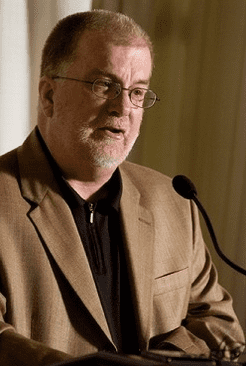Roger Humes in conversation with Koketso Marishane

- Does your relationship with your work change after it has been published and if so, how? How does the concept of publication affect your writing in general?
The change is I have to let the work go. I do go back, reread, and study them, but I know as for working with ton poems that they are done. Dylan Thomas once said if he kept working on the same poems he would have had no time to write new ones.
The only exception is if I later I include them in an extended work. For example, right now I am working on a volume that is a narrative using poetry written from 1972 until now. On some of these poems I have done rewrite to make them better fit the narrative.
- Talk about the challenges and opportunities in accepting or rejecting work submitted for publishing by poets you know personally.
There have been few poets that I have knew before including them in Other Voices, and those that I did I truly wanted to include their work because of its merit. Luckily, this is been a problem that has not manifested for me.
- Is your publication online, print or hybrid? Share your thoughts on the differences between these formats from an editorial point of view. Does your publication accept both snail-mail and email submissions? Explain your policies on this regard.
It is online. We refer to it as a cyber-anthology. We feel that online work has its niche in the publishing world but does not and should not replace printed work. Both I believe have their own important place in the world of poetry. The strength of online is that it is immediate and inexpensive to produce. The advantage of print is that it less ephemeral. A web site could disappear overnight. Printed volumes I believe will stay longer, especially if they use acid free paper.
Besides, physically curling up with a book cannot be replaced by an iPad.
Other Voices is by invitation only. The reason that we have a very small staff. When we first started we opened to submissions but were quickly overwhelmed by the volume. We were drowning in poetry so we had to limit the intake.
Most of our poets have submitted the work online, but Coleman Barks did mail his to me. I have also had a few poets accept our invitation, but I had to copy their work from their books.
- Apart from following submission guidelines, what should a poet sending work do (or refrain from doing to stay on your good side?
This doesn’t really apply to us. However, we do try to keep an open mind. We see Other Voices as a repository of as many styles of poetry as we can post. I myself will include work that I do not personally like but recognize its quality and importance.
- Appropriated the chance to position yourself in the literary space, how would you rate yourself on a global level based on your past-present performance work already done and how do you envision the future of literature on all formats?
I always view myself as Eliot said:
No! I am not Prince Hamlet, nor was meant to be;
Am an attendant lord, one that will do
To swell a progress, start a scene or two
Advise the prince; no doubt, an easy tool,
Deferential, glad to be of use,
Politic, cautious, and meticulous;
Full of high sentence, but a bit obtuse;
At times, indeed, almost ridiculous—
Almost, at times, the Fool.
I my work is solid. I have had my good moments. I am particularly proud of my modern Western version of the Arabic story of Madjun and Layla. However, I am no genius or great writer.
Probably my biggest problem is that I do not push my work enough. I am always more interested in writing the next poem than publishing the present one.
As for the future of literature I believe that we are living in a fantastic era. Technology is offering so many new ways to approach writing as well as new ways and places to exhibit work, and the access to work that would not be as nearly available without it.
For example Other Voices has over 500 poets with work written on all seven continents (we found a poet who had been an artist in residence at an Antarctic science station). Can you imagine how hard it would have been to put together such a collection with email and the Internet, especially since many of the poets are not that well known outside of their country or region?
In addition, technology has given me the fortune to have the Iranian poet Sheema Kalbasi as a partner in Other Voices. She is an exciting poet with an incredible drive and love of the form. Co-writing poetry with her and working on Other Voices is one of the best things to happen to me in my life.
I live in California. She lives on the East Coast. I discovered her work through an online magazine, The Iranian, and first contacted her as a fan via email. I highly doubt we would have ever met if not for the Internet.
So I say in all forms of art and all forms of living embrace the technology and use it to your advantage. I believe that we are living in the most exciting time in history.




